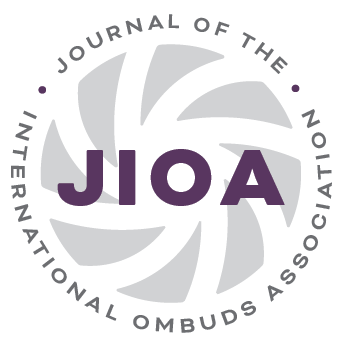Dear Community,
We hope you are easing into the new year and enjoyed some time to rest and restore. We have a few updates to share related to the Miami conference, plans for 2026, plans for 2027, and certification.
1. Educational Events 2025, 2026, 2027
2025 conference
Government Rate Rooms: We understand additional government rates rooms are needed for the April 7-9 conference in Miami. Typically hotels control how many government rooms they will allow in event contracts, so we are at their mercy to add more. In the interim, we suggest you register at the regular IOA rate to secure a room. Alternatively, government rates at other Miami hotels can be accessed
here or a similar search.
2026 and 2027 conferences
We understand some members plan to attend conference 2026 in lieu of Miami, so we wanted to give you an idea of what is planned for ‘26 and ‘27.
We find ourselves trying to balance a myriad of issues: the climate in many offices is changing, many members are experiencing decreased travel/professional development budgets, and the cost of live, in-person conferences continues to go up. In addition, we are mindful that only a percentage of our community (in the US and internationally) can travel to in-person events. The Board takes these issues seriously and has been discussing how best to balance all these interests.
We have concluded that the best way to address these interests is to intentionally plan for virtual annual conferences every few years.
That doesn’t mean there will not be opportunities to get together in-person each year. You may recall the Board’s Education Strategy that was adopted in 2023 added a signature event: The September Symposium. With this addition, we have created one live and one virtual event each year. For the past 2 years, the September Symposium was a virtual event. That is also the plan for 2025.
For 2026, we are planning for a virtual Annual Conference and an in-person September Symposium. For 2027, the Annual Conference will be in-person in Vancouver, British Columbia, Canada, and the September Symposium will be a virtual event.
For those looking to pick up again in person in 2026, we hope to see you at the September Symposium at a location TBD. For those worried about travel in 2025 and 2026, we hope this provides some relief. For those who are not able to attend in-person conferences each year, we hope you feel seen by these plans.
We learned a lot in those pandemic years, and have learned a great deal hosting the September Symposium virtually for the past few years. We do not doubt that the virtual experience, albeit different, will be great!
2. Certification Update
As promised in the
December update, we are committed to updating the community as changes are made to Individual Certification and we roll out new Program Certification. We were energized by the positive response from our December message; it confirms we are on the right track.
The Board of Certification voted in January to stop awarding Candidate for CO-OP designation. The primary reason this designation was created was to address the needs of those who were not able to demonstrate organizational compliance to the Standards of Practice. Given upcoming changes to Individual Certification, there is no longer a need for this designation as certification will be based on individual knowledge and skills. There are very few ombuds who hold that designation and they will be notified of next steps once the Board has determined the best pathway.
If you have any questions about any of these issues, please feel free to reach out to Sarah Klaper, IOA President,
Ellen Miller, Executive Director or Mollie Berg, President of the Board of Certification.

 In celebration of Ombuds Day 2025,
In celebration of Ombuds Day 2025, 